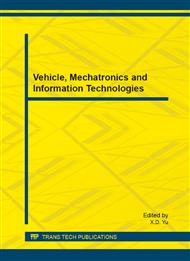p.1693
p.1697
p.1701
p.1705
p.1710
p.1716
p.1721
p.1725
p.1729
A Hybrid Genetic Algorithm for Solving a Type of Scheduling Problem
Abstract:
Genetic algorithm is the most widely used and successful bionic optimization algorithm. In this paper we will discuss the tasks scheduling problem on equipments, establish a general mathematical model and put forward a hybrid genetic algorithm to solve this problem. The simulation results show the effectiveness of the hybrid genetic algorithm.
Info:
Periodical:
Pages:
1710-1715
Citation:
Online since:
August 2013
Authors:
Keywords:
Price:
Сopyright:
© 2013 Trans Tech Publications Ltd. All Rights Reserved
Share:
Citation:


